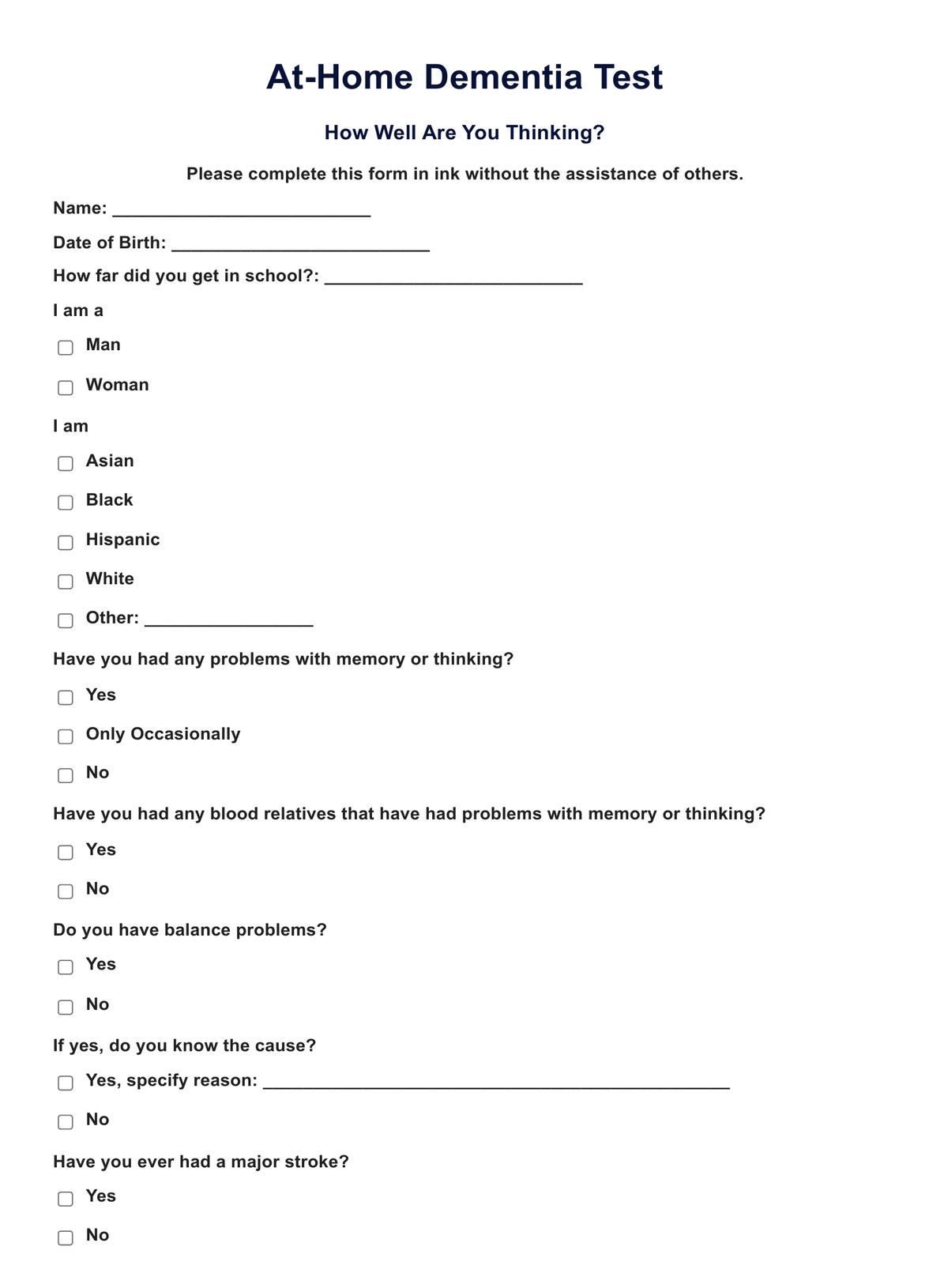No, dementia is typically diagnosed through a comprehensive assessment involving clinical evaluations, cognitive testing, neurological examinations, laboratory tests, and imaging studies. The process considers various factors and requires input from healthcare professionals.

At-Home Dementia Test
Explore at-home dementia tests: benefits, limitations, and choosing the right one. Empower yourself with knowledge for early detection.
At-Home Dementia Test Template
Commonly asked questions
Online cognitive tests may raise awareness of potential cognitive concerns but are not definitive diagnostic tools. Professional evaluation by healthcare professionals is essential for an accurate diagnosis, considering the limitations and varied quality of online tests.
While some causes of cognitive impairment may be reversible, most types of dementia are progressive and irreversible. Treatment focuses on managing symptoms, improving quality of life, and providing support. Early intervention and appropriate care planning can help manage the condition more effectively.
EHR and practice management software
Get started for free
*No credit card required
Free
$0/usd
Unlimited clients
Telehealth
1GB of storage
Client portal text
Automated billing and online payments











